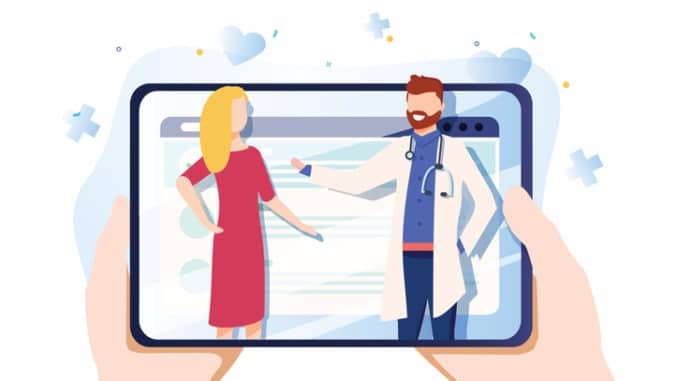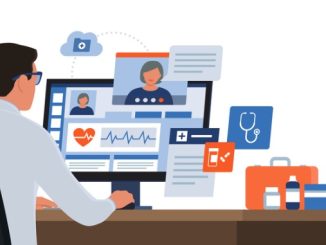
Last March practices across the country were urged to assess patients online, or via telephone and video appointments, to prevent further transmission of COVID – so, a year on, how has this new way of working been received?
Due to the need for social distancing, and limiting in-person contact, face-to-face appointments have been extremely limited over the past year, with the vast majoirty of GP appointments taking place remotely. Health secretary Matt Hancock recently confirmed that, in the UK, 99% of GP practices now offer video consultations, compared with less than 10% before the pandemic. A survey conducted in June for the British Medical Association showed that 88% of GPs want to see greater use of remote appointments continue into the future, demonstrating that those working in general practice think it has worked well.
NHS Digital estimated that half of the 102 million appointments from March to July 2020 were done by video or ‘phone call – yet, according to its appointments‘ data for October, 60% of GP appointments took place face-to-face, 35% were held over the ‚phone, and just 0.49% were via video or online. So, although the option may be there for many, this data demonstrates that there is still significant work to be done to encourage most doctors and patients to try a different approach.
Despite this, according to a survey from healthtech company Visionable, the number of people who are happy with virtual GP consultations has risen significantly over the past year. The company surveyed 1,500 people in February 2020, and a further 1,500 in May, about their attitudes towards healthcare communication technologies. The survey report states that there has been ‘notable growth in support for the role of communication technology in healthcare among UK citizens since COVID-19 has hit’.
It reports that, in February 2020, 62% of those surveyed were happy with virtual appointments and, in May, this had increased to 73% of respondents agreeing that ‘You don’t always need to see a doctor in person to receive appropriate care’, while four-out-of-five saw the technology as ‘vital to the future of the NHS’. However, the report adds that the appetite for virtual appointments was ‘slightly higher in more affluent groups’; this leans into concerns that, as a greater emphasis is placed on remote appointments, a digital divide may grow deeper.
Adapting quickly
NHS England has said that, although nearly two thirds of the public were happy to have a ‘phone or video call with their doctors, those who weren’t were still able to have in-person appointments.
Nikki Kanani, medical director of primary care for NHS England, says GPs have adapted quickly, in recent months, to offer remote consultations and “safe, face-to-face care when needed”.
“While many people, particularly those most vulnerable to COVID-19, want the convenience of a consultation over the ‘phone, or via video, the NHS has been, and will continue, offering face-to-face appointments. I would urge anyone who feels they need medical support to come forward so they can get the care, support and advice they need – the NHS is here for you,” she said
The NHS has now published a £75m tender for the provision of online and video consultations. The tender notice reveals that the NHS is looking for ‘suitably experienced and qualified’ suppliers to join the Digital First, Online Consultation and Video Consultation (DFOCVC) Framework, which aims to deliver commitments in the NHS Long Term Plan to support online consultation in general practice; nearly all GP practices in England now have a video consultation provider sourced from the Dynamic Purchase Service Framework or the Digital Care Services Framework (DCS, also known as GPIT Futures).
Video appointments rose to the challenge in 2020, and showed how quickly primary care can adapt to challenges. In 2021, most believe it’s time for the sector to continue to put the technology used over the last year to good use, and expand it even further.


Be the first to comment